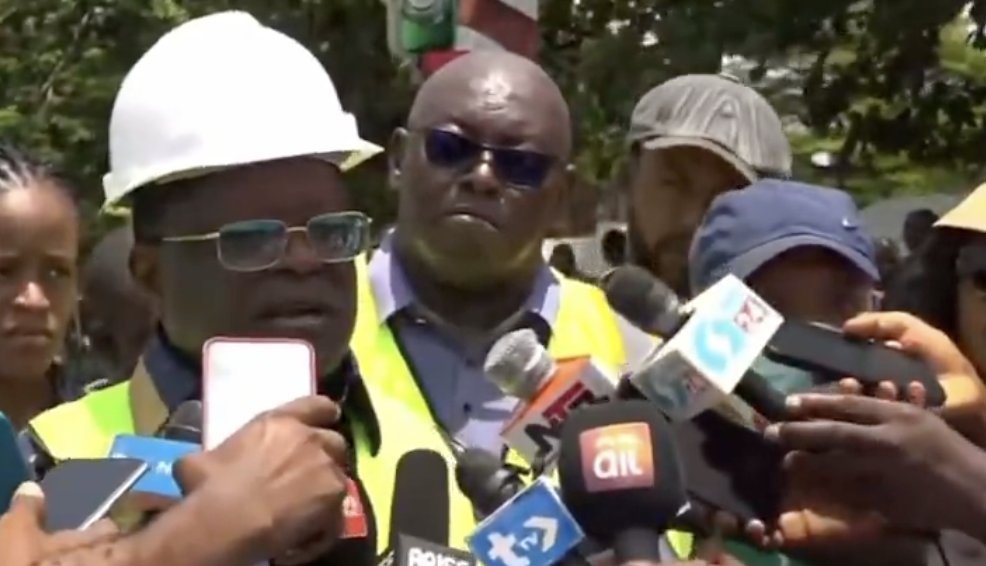The Independence Bridge, a crucial transportation artery connecting Victoria Island to other vital areas of Lagos State, has been reopened by the Minister of Works, David Umahi, following a public outcry over the debilitating traffic gridlock caused by its abrupt closure. The closure, initially intended for essential maintenance and rehabilitation and projected to last until May 2025, was met with immediate and widespread disapproval from Lagos residents who found themselves trapped in hours-long traffic jams, particularly on Wednesday night. The absence of adequate traffic management measures further exacerbated the situation, prompting a swift response from the Minister. Umahi, acknowledging the severe disruption the closure had caused, ordered the bridge reopened and assured the public that permanent repair work would commence within three weeks.
The initial announcement of the bridge closure, while intended to address critical maintenance needs, lacked sufficient communication and planning regarding the traffic implications for Lagos commuters. The sudden implementation without adequate alternative routes or traffic control measures resulted in massive congestion, particularly in the Ikoyi area. Social media platforms became inundated with complaints from frustrated residents, highlighting the significant impact on daily commutes and the overall flow of traffic in the city. The rapid and widespread expression of public discontent forced the Ministry of Works to reassess its strategy and ultimately led to the Minister’s decision to reopen the bridge.
Minister Umahi’s decision to reopen the bridge demonstrates a responsiveness to public concerns and an acknowledgement of the flawed execution of the initial closure plan. His public statement addressing the situation emphasized the importance of the Independence Bridge to Lagos’s transportation network and conveyed an apology for the inconvenience experienced by residents. While recognizing the necessity of the maintenance work, Umahi emphasized the need for a more carefully considered approach that minimizes disruption to the public. The Minister committed to a three-week timeline for the commencement of permanent repairs, suggesting a revised strategy that aims to balance the need for infrastructure improvement with the imperative of maintaining a functional transportation system.
The Independence Bridge incident underscores the vital role of effective communication and thorough planning in infrastructure projects, particularly in densely populated urban environments like Lagos. The absence of these elements can lead to unintended consequences, such as the widespread traffic chaos witnessed following the bridge closure. It highlights the importance of anticipating potential disruptions, providing alternative routes, and implementing robust traffic management strategies to mitigate the impact on commuters. Furthermore, it underscores the power of public feedback and the role of social media in amplifying public voices and prompting governmental action.
The Ministry of Works now has the opportunity to utilize the lessons learned from this experience to enhance its approach to future infrastructure projects. A more comprehensive and proactive approach that incorporates public consultation, detailed traffic impact assessments, and clearly communicated alternative routes is essential to avoid similar disruptions in the future. The incident emphasizes the need for a collaborative approach involving relevant stakeholders, including traffic management agencies and the public, to ensure that infrastructure improvements are implemented smoothly and with minimal disruption.
Moving forward, the Ministry of Works must prioritize transparency and communication in its infrastructure development plans. Regular updates on project timelines, traffic management strategies, and alternative routes should be readily accessible to the public. Engaging with communities and actively soliciting feedback can help identify potential challenges and refine plans to minimize negative impacts. This incident serves as a valuable learning experience, highlighting the crucial importance of integrating public needs and concerns into infrastructure development processes to ensure sustainable and effective improvements to urban transportation networks. The prompt response to the public outcry and the commitment to a more measured approach to the bridge repairs suggest a positive step towards a more responsive and citizen-centric approach to infrastructure management.


